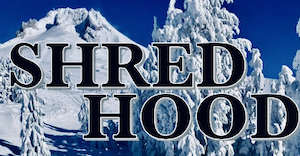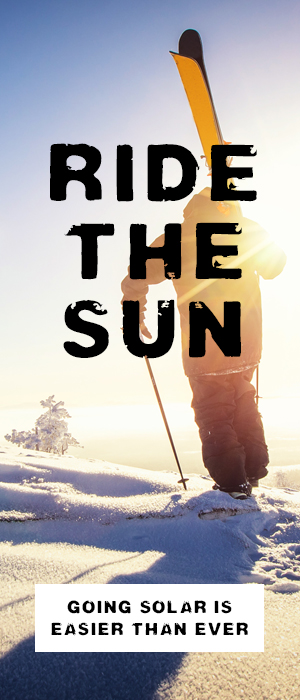KGW Meteorologist Rod Hill, who has been making forecasts in Portland since 1999, looked out at a packed crowd of weather buffs gathered for the 2014-15 winter forecast and grinned: “My main message to you this morning is simply going to be: We don’t know!”
Speaking at the 22nd annual Winter Weather Conference of the Oregon Chapter of the American Meteorological Society at the Oregon Museum of Science and Industry in Portland, Hill admitted that all the sophisticated modeling available can only give a meteorologist a long-term seasonal forecast that is “a little better than a coin toss.” And he pointed out correctly that no one predicted it right last year.
Had someone made an accurate 2013-14 winter snow forecast a year ago, here is what it would have been:
- Major snow accumulation on Mount Hood in October allowing for fresh powder turns at Timberline by Oct. 12
- A huge rainstorm on Thanksgiving weekend that washed away previous snow gains
- Drought conditions through December and early January, with no chairlifts in operation at Skibowl until mid-January
- An abnormally high number of inversions that made January seem like June-uary at Meadows and Timberline
- A huge snow spring on Mount Hood that boosted snow bases from some of their lowest levels ever back to pretty much normal by April, with fresh powder into May
As a previous speaker, Fox Meteorologist Mark Nelsen, pointed out, “We only had normal winter weather for three weeks last year.”
Follow that up with the hottest summer in Portland history and an out-of-nowhere tornado in Longview in October, and you can see why Hill was hesitant to give a confident prediction. Still, he bravely soldiered on, predicting a moderate El Nino year with slightly warmer than average temperatures and slightly less precipitation. His prediction for annual snowfall at Timberline was a slightly below average but still quite substantial 500 inches (keep in mind that annual snowfall counts all the snow that melts away or is washed away by rain).
A low-confidence consensus, and The Serious Issue That Shall Not Be Named
Hill’s less-than-confident prediction was echoed with slightly more oomph by Liona Ramirez of the National Weather Service in Portland and Kyle Dittmer, a hydrologist and meteorologist with the Columbia River Intertribal Fish Commission. The consensus seems to be that 2014-15 will be a weak El Nino year due to warmer-than-average water in the Pacific Ocean. Ramirez calculated a 40-50 percent chance of warmer weather and 33 percent chance that 2014-15 will be drier than normal. “This kind of seems a little dismal for our snowpack,” she said, before pointing out that an earlier El Nino year of 1968-69 brought a huge blizzard that dumped 34 inches of snow on Portland.
Mt. Hood Meadows Executive Director of Public Relations and Social Media Dave Tragethon was quick to point out that when it comes to snow conditions on the mountain, perception doesn’t always match reality. As proof he offered a lively powder video shot when the base at Meadows was just 23 inches, rather than the 200-plus inches that Mount Hood regulars have come to expect.
As Tragethon pointed out, the Pacific Northwest routinely receives by far the most snow of all the ski regions in the United States. “If there is going to be a good snowpack anywhere, chances are it is going to be in the Pacific Northwest and up on Mount Hood,” he said.
Tragethon’s humorous presentation featured a wooly bear donning a sweater and an inside look at the “Doppler 8001” weather center at Meadows. Other presenters cracked jokes about weather rivalries between Portland television stations.
Meanwhile, the less humorous question of how climate change will impact winter weather into the future was for some reason forbidden at this major weather gathering. Oregon AMS President Steve Pierce even showed a slide of subjects not to be discussed that included ebola, chemtrails and “Global Warming or Global Cooling depending on your perspective.”
Was Pierce attempting to liken climate change to a conspiracy theory? I’m not sure, but the discussion ban struck me as unpleasantly weird. For me, the first question to ask when a person of influence bans the subject of climate change from a public discussion of weather trends is, “Who is paying you not to discuss climate change?”
For anyone interested in delving into the unsettling but vital question of how climate change relates to snow, you might want to read DEEP: The Story of Skiing and the Future of Snow, by Porter Fox.
Last modified: October 28, 2014

